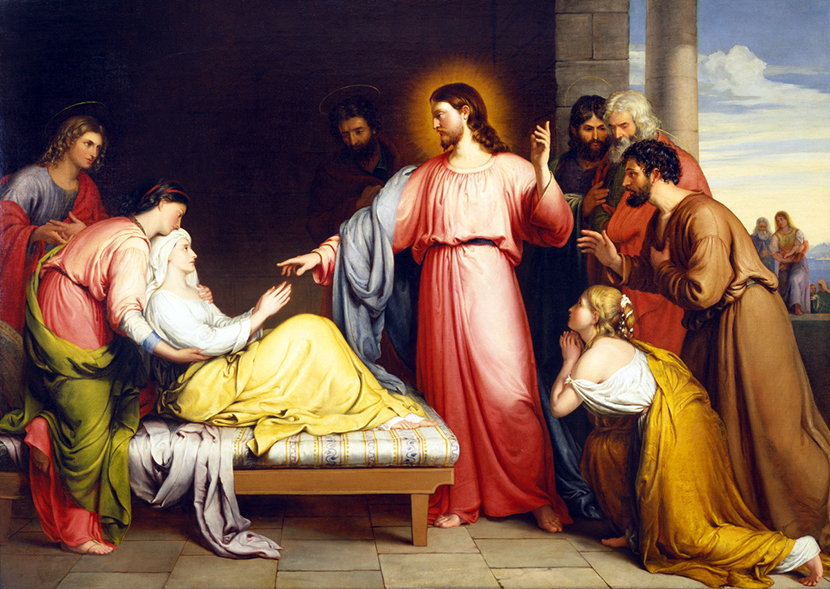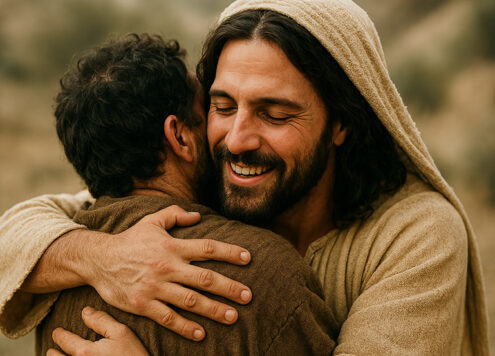When Pontius Pilate confronted Jesus with the question, “Are you a king?” Jesus responded with an affirmation, yet clarified, “My kingdom does not belong to this world” (John 18:36). This response remains as profound today as it was two millennia ago. It challenges us to rethink our understanding of power, authority, and what it means to belong to the Kingdom of God. So, what kind of kingdom is this if it is not of this world?
Unlike earthly kingdoms, characterized by wealth, dominance, and the pursuit of power, Christ’s kingdom operates differently. It is not a realm where the powerful oppress the weak, nor a stage for pomp and spectacle. Instead, it is a kingdom rooted in humility and loving service to others. Jesus exemplified this when He declared, “The Son of Man did not come to be served, but to serve” (Matthew 20:28). He modeled his kingdom through actions like washing His disciples’ feet—a striking gesture of selfless love and humility (John 13:14-15).
This radical vision is further illuminated in Christ’s “new commandment”: “Love one another as I have loved you” (John 13:34). Through His life and teaching, Jesus redefined greatness, linking it not to authority or accolades but to service and sacrifice. The Kingdom of God is realized wherever this love is put into practice.
When Jesus told Pilate, “For this reason I came into the world, to testify to the truth” (John 18:37), He introduced a truth unlike any other. While we often think of truth in terms of categories—scientific, historical, literary, or ethical—Jesus spoke of a deeper, living truth. This truth is the person of Christ Himself (John 14:6), the Word made flesh who reveals God’s saving love to humanity.
Living truth transcends intellectual understanding and calls for transformation. It addresses humanity’s deepest need: freedom from sin and reconciliation with God. As Saint Paul writes, “For freedom Christ has set us free” (Galatians 5:1). This liberation allows us to live as children of God, unshackled by the limitations of our fallen nature.
Christ’s kingdom is not about rigid ideological adherence or divisive doctrinal disputes. Doctrine has its place, serving as a guide to faith and morals, but it must be lived out in love. As Saint John warns, “Whoever claims to love God yet hates a brother or sister is a liar” (1 John 4:20). Faith without love is empty, and doctrine without compassion becomes lifeless.
Unfortunately, history and contemporary times provide examples of how Christianity can be distorted into something unrecognizable. Movements like Christian nationalism, which intertwine faith with political power, often betray the very essence of the Gospel. Such ideologies echo the Crusades, where violence was tragically carried out in Christ’s name. These contradictions underscore the need to return to the heart of Christ’s kingdom: love, mercy, and humility.
Reflecting on the Kingdom not of this world reveals its paradoxical nature. It is both already here and not yet fully realized. Jesus proclaimed, “The Kingdom of God is within you” (Luke 17:21), reminding us that it begins in our hearts and extends outward through our actions. The Kingdom takes root when we embody Christ’s love in our daily lives—whether through a kind word, a generous deed, or forgiveness freely given.
Living as citizens of this Kingdom means rejecting mere lip service to Christ’s teachings. Instead, it requires genuine, sacrificial service to others, following the example of the Servant King. It is in our thoughts, words, and deeds that the truth of Christ’s kingdom becomes visible.
The Kingdom of God is not a distant ideal or an abstract theological concept. It is a living reality, breaking into the world whenever we choose love over hate, humility over pride, and service over self-interest. It challenges us to rise above worldly standards and embrace a life modeled on Jesus Christ.
As we reflect on this Kingdom, let us commit to being its ambassadors, not through lip service, force or ideology but through example. The way we think, speak, and act reflects whether we belong to the Kingdom not of this world. In the end, this Kingdom is not about borders, politics, or power—it is about hearts transformed by the living truth of Christ’s love: to love one another as He has loved us.
—Fr. Hugh Duffy, Ph.D.











6 Comments
Leonard Ntaate Mukasa
What a beautiful and timely sermon!
My Parish is Christ The King Catholic Church. We are celebrating Jesus Christ King of the Universe Nov 24.
I see elements of Christian Nationalism around me.
Tom Walsh
Thank you Fr. Hugh for this enlightenment on The Kingdom of God. What a different world it would be if everyone played there part in living our daily lives with each other in Love, Peace, Forgiveness and Trust. Presently I believe we are a long way fro achieving this, but change has to begin with each person who wishes to make a difference and that includes me. God Bless you and your Ministry. 🙏
Hugh Duffy
Thanks, Tom and Leonard for your insightful comments. Yes, the kingdom of God is built up one person at a time. Christian nationalism is an aberration. Jesus’s kingdom is for people of good will who are willing to follow him by the way they live.
Bartholomew Okere
Fr.Duffy, my favorite celebration-Christ, the universal King you reflected perfectly well to people who really acknowledged Him in their lives.To acknowledge Christ as such, our souls must be a spiritual paradise for God to dwell. All your biblical references showcased the best way to describe the k/dom not of this world but the k/dom that is within us for those who love God & neighbor. Thx.
Hugh Duffy
Bartholomew:
I hope you enjoyed or will enjoy today’s celebration of Christ the King, and that my blog will have contributed to the celebration.
📉 Email- You got a transfer #WA05. RECEIVE >> https://telegra.ph/Go-to-your-personal-cabinet-08-25?hs=b94abcc6a43cd9525bafe59ac0bedd71& 📉
k1evor